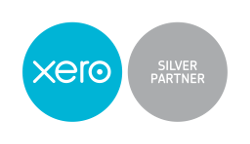Tax is defined as a compulsory contribution to state revenue, charged by the government on income and business profits. It can be added to the cost of some goods, transactions, or services.
Taxes are used to pay for people who work for the government, to provide services such as health care and education, and to maintain roads, bridges, and sewers.
There are different types and classifications of taxes falling into categories of direct, indirect, progressive, proportional, and regressive. So, what is corporation tax? Find out everything you need to know here…
Corporation Tax Overview
You are obliged to pay corporation tax on profits from doing business as a limited company, a foreign company with a UK office or branch, or a club, co-operative, community group or sports club. Trade and housing associations also pay corporation tax.
Profits are considered as any money that your business makes after costs and expenses have been deducted, and overheads and salaries paid. Corporation tax will also be due on any money the business makes from investments, and from selling capital assets for more than they cost. These are known as chargeable gains. Moreover, corporations decide on potential dividends on their earnings after taxes
Paying and Reporting Your Corporation Tax Guidelines
You don’t actually get a bill for corporation tax so you need to:
- Register for corporation tax via HMRC
- Keep accounting records and prepare a company tax return form
- Pay corporation tax by the deadline – or report if you have nothing to pay
- File the company tax return by your deadline
Registering with HMRC
When you register your business with HMRC you’ll need to include the following details:
- The business start date – this will be used for the start date of the first accounting period
- Company name and registration number – provided by Companies House
- Main address
- Type of business
- The date your annual accounts will be made up to
- Names and home addresses of company directors
Get Answers to Frequently Asked Questions
What percentage is corporation tax?
Corporation tax rates vary each year – in 2016 the tax was set at 20%. 2017 saw a decrease to 19%, and for 2020 this will change to 17%.
What is corporation tax rate?
On average the small business tax rate is 19.8%, but businesses will pay different amounts in taxes based on their entities.
When is corporation tax due?
You must submit your corporation tax return between the date of your company year-end and the statutory filing date – either 12 months after the year-end or there months after you receive notice from HMRC – whichever is the latest.
If your company has made profits of up to £1.5 million, you’ll need to pay corporation tax within nine months after the end of your accounting year.
Profits of more than £1.5 million will have to be paid in instalments.
How much is corporation tax?
Profit calculated in your accounts isn’t necessarily the same as which corporation tax is calculated. You can take the net profits, add expenses, and deduct income, but then there’s the question of capital allowances, income from property, and chargeable gains. It’s in your best interest to get help from an accredited tax advisor.
How is corporation tax calculated?
Taxable profits are calculated on the money your company or association makes from doing business. These are known as trading profits. Investments, and selling assets for more than they cost (chargeable gains) are also taken into account.
If your company is based in the UK it will pay corporation tax on all profits from the UK and abroad. If your company is based abroad and has an active branch here it will only pat corporation tax from business activities in the UK.
How much is corporation tax for a limited company?
The corporation tax rate for company profits for the 2018/2019 tax year was 19% so if your business made an annual profit of £100,000 you could expect to pay around £19,000 in corporation tax.
When do you pay corporation tax?
Corporation tax must be paid by the deadline set by HMRC to avoid any fines. Late payment penalties are:
- £100 for one day
- Another £100 for three months
- A 10% addition to an estimated bill for six months
- Another 10% added to an estimated bill for 12 months
How to pay corporation tax is straightforward – you can pay online or by telephone banking. BACS payments may take up to three working days, and direct debits can take five working days if newly set up.
Make an Appointment with the Professionals
Tax Navigator offers an entire range of taxation services for companies and small businesses. You’ll be able to rely on specialist and confidential advice for your specific business needs.
Premium accounting preparation will be completed expertly, with all the statutory accounts submissions taken care of. Your tax return will be filed on time – and your tax position optimised to avoid any overpayment. And qualified accountants will ensure this stress-free service will save you time and money.



0 Comments